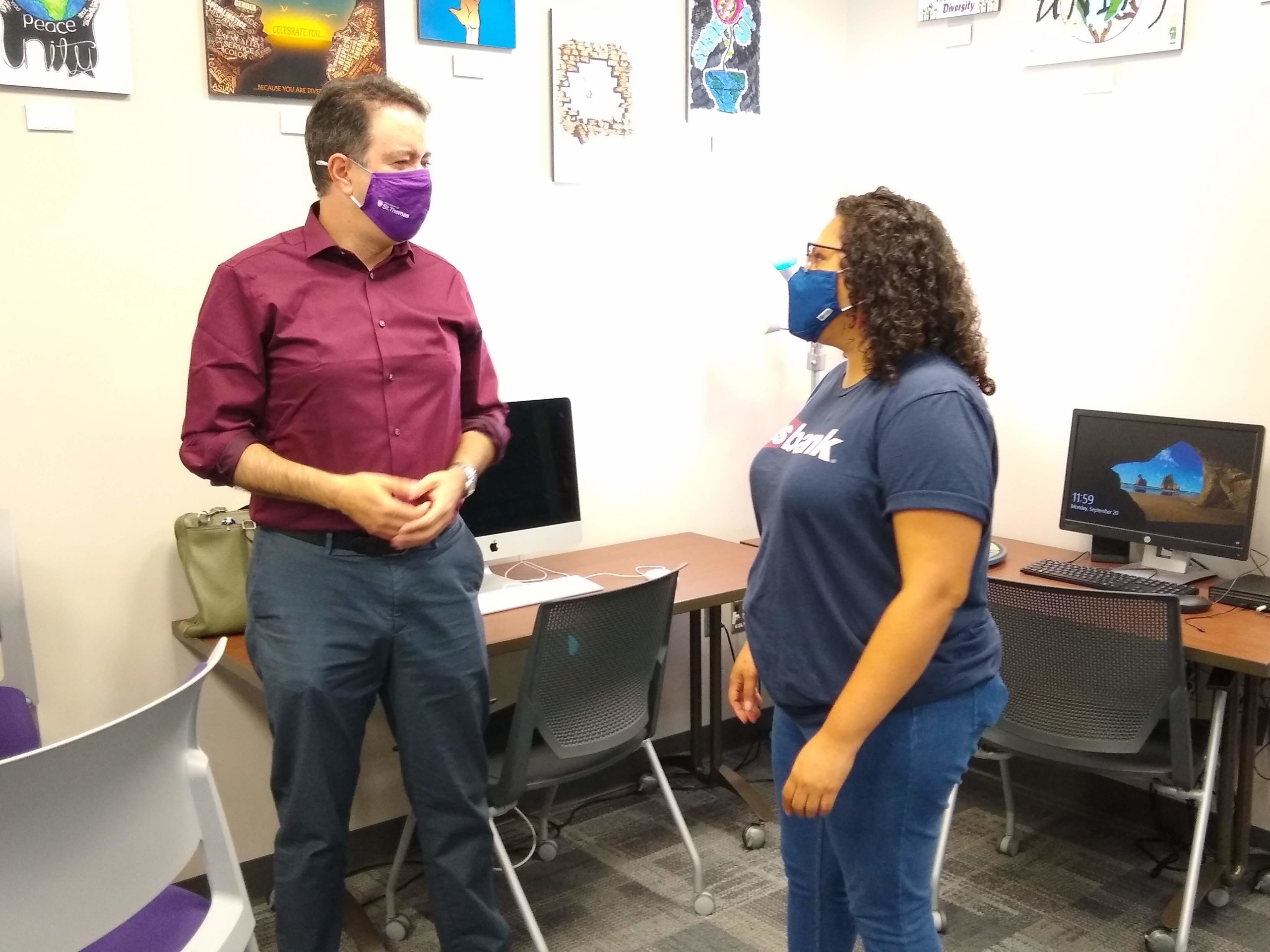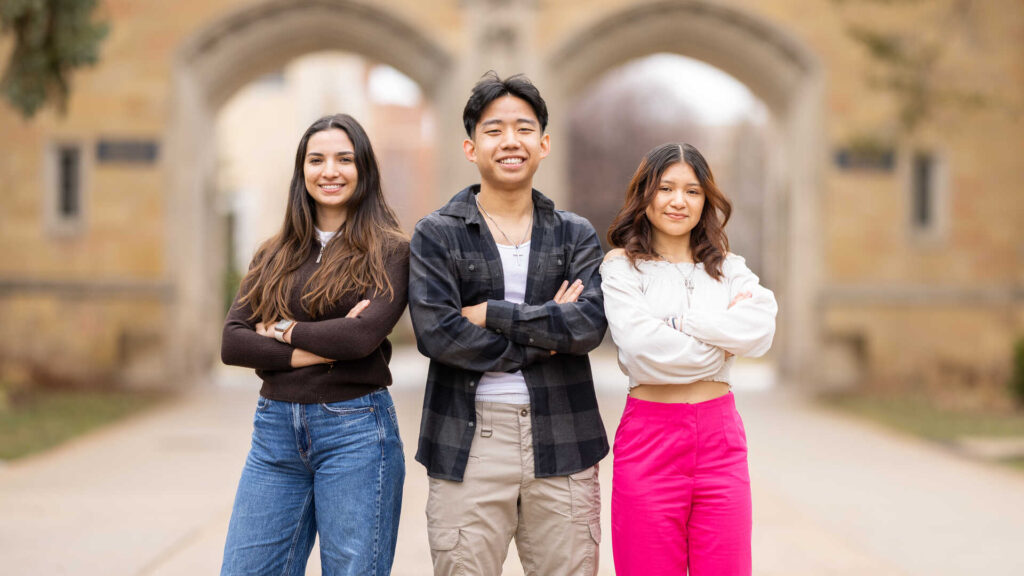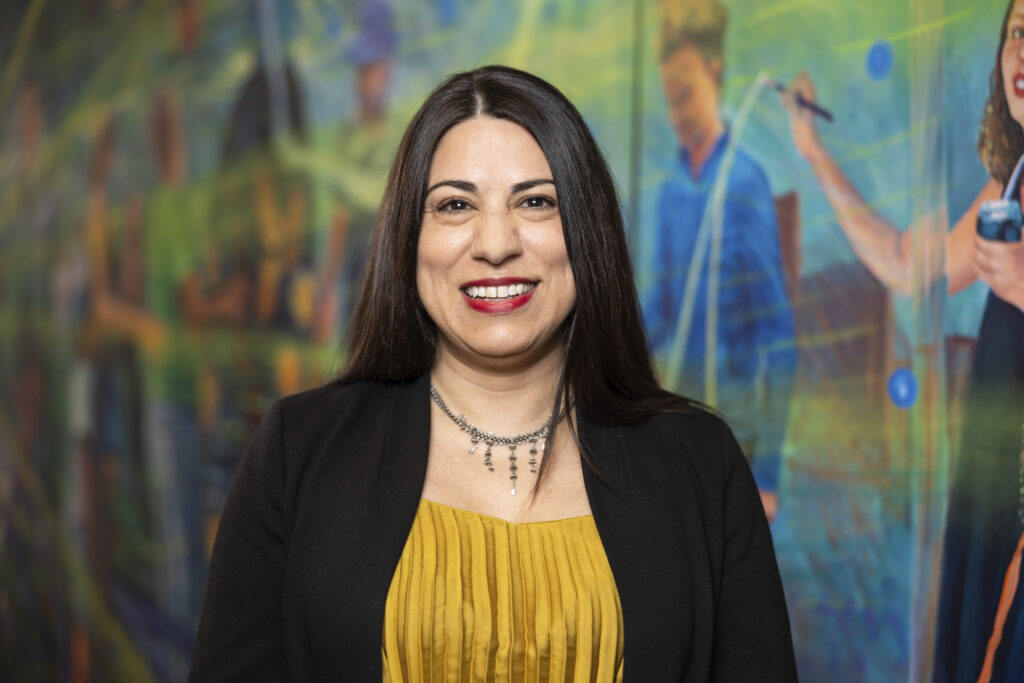Top of mind for most college seniors is how to land the first job after college. As part of Hispanic Heritage Month events, St. Thomas’ Student Diversity and Inclusion Services as well as the Career Development Center brought in Vicky Hidalgo of U.S. Bank, senior manager of campus recruiting, to share some insights on starting one’s post-college career. Hidalgo spoke with students in the intimate setting of the Intercultural Center.
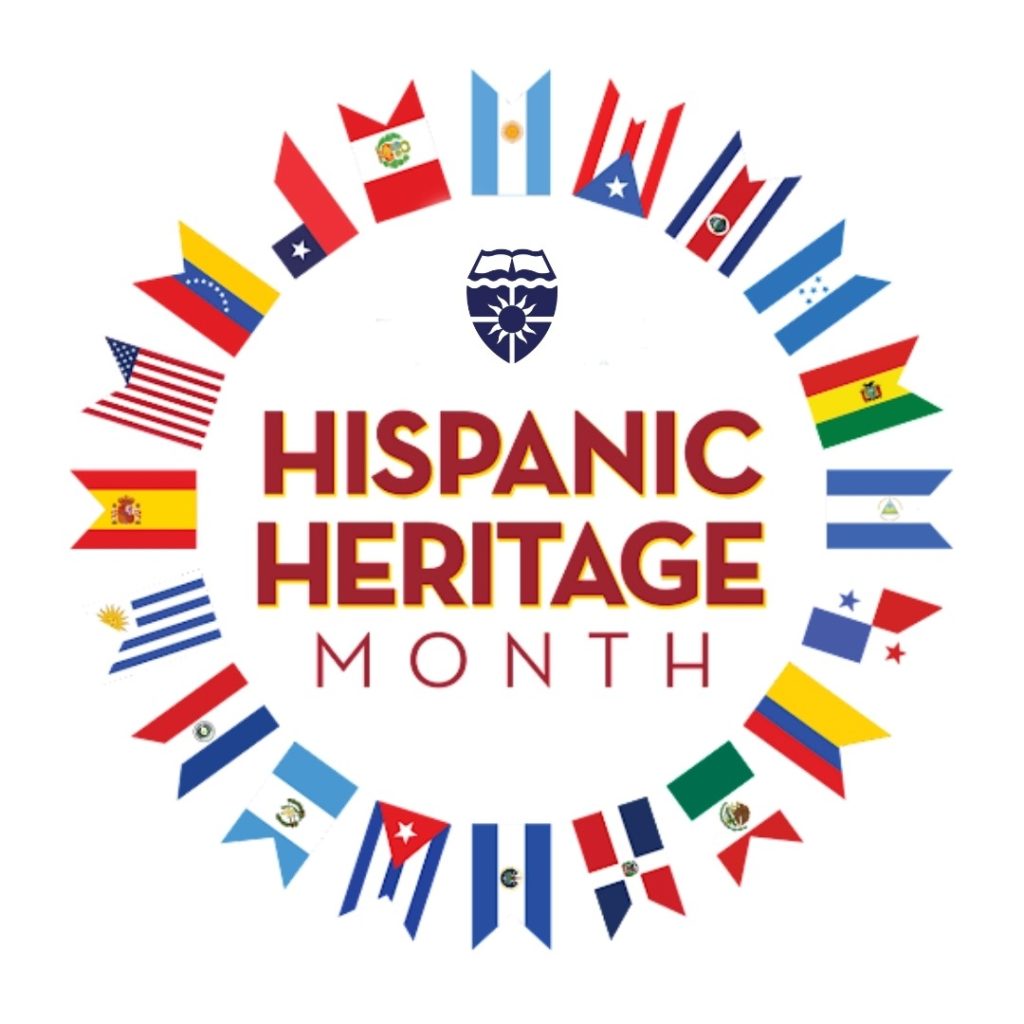
Students were engaged and asked questions ranging from when to apply to positions to how to prepare for interviews. Here are five observations from Hidalgo’s talk with students.
1. Apply in the fall.
While it varies from company to company, for Fortune 500 companies like U.S. Bank, fall is the time for seniors to apply for positions rather than waiting until closer to graduation. Hidalgo said that all of U.S. Bank’s opportunities already are posted on its website, and that 80% of the post-graduation roles at the company are filled by Thanksgiving.
“[At U.S. Bank], you go through the interview process now, and you typically get a job offer near the end of October or beginning of November to start after you graduate,” she said.
U.S. Bank has a cohort that starts in January and one that starts in June. However, if one is applying to a company that doesn't have a campus program or team, Hidalgo recommends waiting to apply until closer to graduation.
2. Prepare for behavioral questions in interviews.
“The way that we [at U.S. Bank] view being able to spot potential in people is thinking about that the biggest demonstrator of future success is previous actions,” Hidalgo said.
She said to be prepared for behavioral questions along the lines of:
- “Give me an example of a time when you…”
- “Tell me about a time when you had to influence a group or do a project in a certain way.”
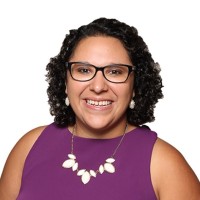
To successfully answer behavioral questions, Hidalgo recommended thoroughly explaining the process of a situation. For instance, think about what one had to do, how one did it and what the result was.
Think of experiences that one has had and how they demonstrate skills such as problem-solving, leadership, communication or teamwork.
3. Think of questions you will ask the interviewer.
The best question that Hidalgo has received from a candidate is, “Is there anything that you didn’t hear about through this conversation that you wish you would have more detail on for my candidacy?”
“[This question] puts the recruiter in a place where they have to very quickly assess if there’s anything that you are missing to be a successful candidate for the role,” Hidalgo said. “If they share that with you, then you can course correct [by providing an appropriate example].”
Asking this question also prepares one for the next round of interviews by knowing something to highlight.
4. Highlight the liberal arts education.
For full-time campus hires, U.S. Bank tries to spot for potential versus previous experience.
“That’s where the liberal arts education really helps,” Hidalgo said. “The No. 1 thing that we’re looking for in people is their ability to be agile, their ability to be flexible and operate in gray space. When you are given a project, how can you think critically to be able to get it done with little direction? That’s a lot of what you learn through a liberal arts education.”
The second top skill that U.S. Bank looks for is communication – both written and verbal.
Given the size of U.S. Bank, which has more than 70,000 employees, Hidalgo said that students from any major could possibly work at the company.
5. Look for organizations that align with one’s values, such as diversity, equity and inclusion [DEI].
As a first-generation college student who was born in Mexico City and moved to Minnesota when she was 12, Hidalgo was looking for a company that took the concept of equity and inclusion seriously when she pivoted from higher education to the corporate world three years ago.
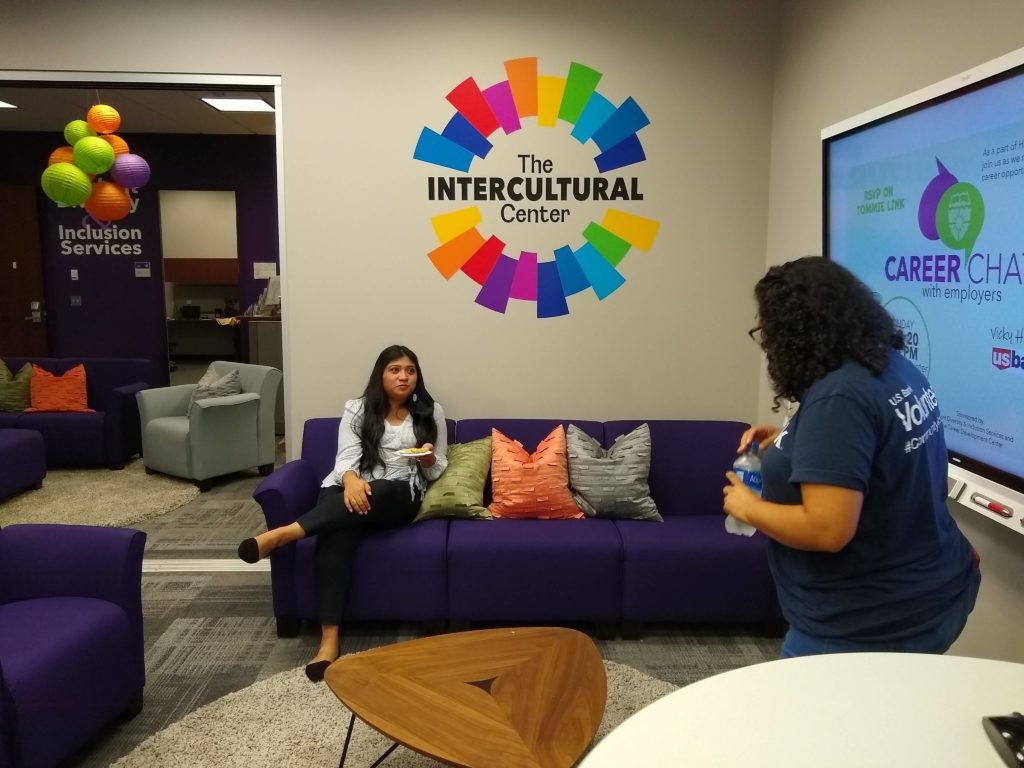
“I have been blown away by the dedication [to DEI] that I see at U.S. Bank,” Hidalgo said. “Oftentimes, diversity, equity and inclusion tends to happen from the grassroots up, with people being the advocates trying to push for change. … At U.S. Bank, we’ve got leaders, starting with Chairman, President and CEO [and St. Thomas Board of Trustees member] Andrew Cecere ’82, and all of his direct reports, who are incredibly committed to DEI.”
Hidalgo said that U.S. Bank is increasingly transparent with its diversity data and recently launched a management accelerator program for Black, Asian American and Pacific Islander, and Latinx employees.
